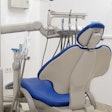
When I start talking about job descriptions, many of my clients initially tell me they are a waste of time. However, job descriptions are invaluable to your practice. They set your team members up for success, which translates into increased practice productivity and a more robust bottom line.
Taking the time to create detailed job descriptions will bring many benefits to your practice. Still don't think you need them? Here are five reasons that should convince you otherwise.
5 reasons
 Sally McKenzie, CEO of McKenzie Management.
Sally McKenzie, CEO of McKenzie Management.Developing detailed job descriptions does take some time, but it's time well spent. When employees have job descriptions, they know exactly what's expected of them and what it takes to excel. The bottom line is that they will be more efficient, more effective, and much happier, which translates into a bigger bottom line for your practice.
1. Job descriptions help ensure you hire the right people
If you send candidates job descriptions before you start the interviewing process, some might realize they're not right for the position. You can also refer to job descriptions as you go through resumes, making sure anyone you consider has the skills and background necessary to excel in the role you need to fill. Doing this will save you -- and unqualified job applicants -- a lot of time and heartache down the road.
2. Job descriptions help team members excel
When they have job descriptions to guide them, team members know exactly what they're responsible for and what their position entails. They don't have to guess or try to read your mind, which often leads to stress and frustration.
Instead, they can focus on efficiently performing their jobs and doing their best to meet and exceed your expectations. Job descriptions offer team members a road map to success, making them more confident and effective.
3. Job descriptions help reduce conflict
“Job descriptions offer team members a road map to success.”
Team members often experience conflict because they're not clear who is responsible for what responsibilities. This confusion could lead to tasks not getting done or more than one team member taking on the same responsibilities but handling them in different ways.
Both scenarios cause confusion and inevitably conflict among your team members. When this is left unresolved, such conflict can do a lot of damage to a practice. Creating job descriptions and sharing them with everyone eliminates confusion and reduces the chance of conflict hurting practice efficiencies and ultimately your bottom line.
4. Job descriptions make your expectations clear
Every job description should outline performance measurements. Why? Including performance measurements leaves no doubt about what your expectations are and what it takes for employees to meet (and even exceed) them. It also makes it clear how raises can be earned, motivating team members to excel in their roles.
5. Job descriptions help build team morale
Without clear direction from you, the practice CEO, your team members will feel lost. They won't be confident in their skills or see how their contributions help move the practice forward. But when you give them the direction they crave in the form of a detailed job description, they know exactly what's expected of them. This not only leads to more efficient, effective employees, it also leads to happier employees.
Team members find their jobs much more rewarding when they're not constantly second-guessing themselves or dealing with conflict. They simply become better at what they do and are happier to come to work each day. This will show in the way they interact with your patients.
Now that you're convinced it's time to create job descriptions for every position in your practice, you're probably wondering what all they should include. I suggest a detailed definition of the job, the necessary skill set, specific job responsibilities and duties, performance measurements, and a clear statement indicating the job description isn't all-inclusive.
When you're ready to put your job descriptions together, I recommend sitting down with team members to get their feedback. Make them part of the process so they know how much you value their input. Doing this will also help them take ownership of their role -- and see how important they truly are to practice success.
Sally McKenzie is the CEO of McKenzie Management, a full-service, nationwide dental practice management company. Contact her directly at 877-777-6151 or at [email protected].
The comments and observations expressed herein do not necessarily reflect the opinions of DrBicuspid.com, nor should they be construed as an endorsement or admonishment of any particular idea, vendor, or organization.



















